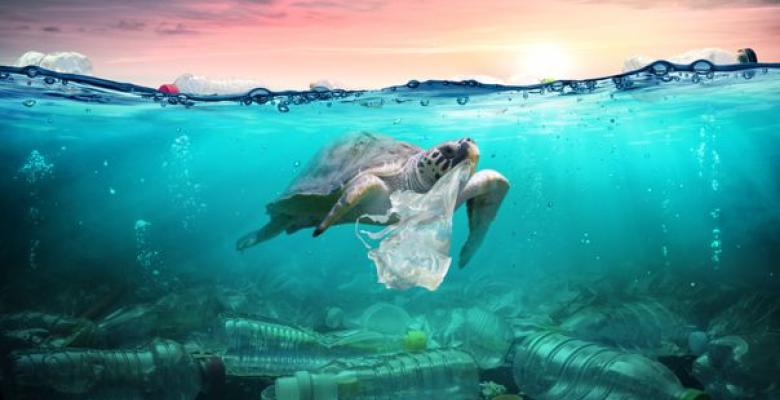A sea of marine litter
especiales

Since 2005, PNUMA (United Nations Environment Programme) is warning about ocean pollution sole and exclusively due to the action of men, which is now tagged as a world crisis. Of course there are beautiful pictures of greenish-blue, crystalline, coral-filled seabed, colorful fishes and enigma. However, there is another side of the picture as well: a sea of marine litter is what we are going to provoke as there is one side of the coin we do not see, low-profile, with no contests to show off, which is tons of garbage piled up in the sea across the world. It is concerning, especially when figure does not show any decrease, indeed quite the reverse.
Plastic is all over. It is a material that can be, at the same time, resistant, light, economical; it is very easy to manipulate and we can do wonders with it. However, its benefit is, at the same time, its weak point: it lasts a long time. I would not say it's everlasting, but it remains almost intact, and depending on its type, it takes roughly a century to a thousand years for a single piece to decompose in a natural environment. In addition, erosion causes it to break up into tiny particles, making it impossible to clean. So, all that waste reaching the sea, which looks like islands today, will take so long to biodegrade, that at this rate, we will never see clean oceans and perhaps, in the future, we can walk to continental lands above unsinkable roads.
It seems that we do not know what to do with so many leftovers, we want it away from home and we think it's enough to leave it at the door. And once again, it is an economic problem to keep our world clean, but what about our consciences? Yes, there will not be enough bins, nor a well-organized and equipped recycling infrastructure. However, I would not leave any leftover behind along the way. In my handbag, I keep from the empty peanut cone to the cookie wrapper, and everything else that I understand I cannot throw away in the streets, much less in the sea.
A small glass that a person throws on the sea in front of the Malecon seafront is not just a small transparent glass, it is not a trivial act. Imagine that each of us throws an item, a nylon bag, it would be millions of pieces of waste destined for the sea depths, just off the Cuban coast. Let’s picture the same all over the world: ordinary people like you and me, large and small industries, each contributing to the hecatomb of dirt everywhere.
It may seem dramatic, but experts on the subject report that thousands of kilograms of this component reach the sea every day, while we only see 15-20% of all the marine litter, which is what remains on the sea surface; the rest goes to the sea bottom.
This is how the nature magazine postcard ceases to be perfect. Biologists explain that it affects the ecosystem and thousands of animals get trapped or ingest debris that, being small sized and floating, gradually displaces plankton. There are species in danger of extinction due to these anthropic factors, such as the loggerhead turtle of the Atlantic, Pacific, Indian and Mediterranean oceans.
I have seen images that show the immensity of the sea as a large dirty tank, and coasts full of toothbrushes, glasses, nets, wrappers, and so on, not to mention other materials such as metal, glass, and much more.
It is one of the most serious causes of sea pollution. And there seems to be no solution except to stop doing it now and start recovering all that amount of plastic particles scattered everywhere, a difficult task. Environmental defenders, institutions and activists are not enough.
However, common sense fails over discipline, Public policies are lacking, in not a few countries, to stop the death of different ecosystems. We do not need to be told how serious the matter is to understand that garbage is recycled. And despite the fact that the problem has been identified for years, such behavior harms maritime wealth and rapidly ends human existence. If humanity originated in the sea, it is precisely in the sea that we are also annihilating mankind.
Translated by Sergio A. Paneque Díaz / CubaSí Translation Staff













Add new comment